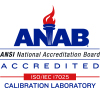 Posted on
Posted on

Pharmaceutical logistics is an important aspect of the healthcare industry. It requires monitoring and recording various parameters of pharmaceutical products during storage and transportation to ensure their quality and effectiveness. The use of data loggers is a significant advancement in pharmaceutical monitoring, which has revolutionized the industry in recent years.
Data loggers are electronic devices that are used to record and store data regarding a particular parameter of a product. They are equipped with sensors that measure parameters such as temperature, humidity, and pressure which are critical factors that can affect the quality and efficacy of pharmaceutical products. The data loggers store this data in their memory, which can be retrieved later for analysis and evaluation.
There are many different types of data loggers available in the market today. Some are designed to be used in specific environments, such as refrigerators or freezers, while others are more versatile and can be used in a wide range of settings. Regardless of the type of data logger, they all function in a similar way: by taking readings at regular intervals and storing them in internal memory. Some models are also able to transmit data wirelessly to a computer or phone, making it easier to track and analyze data in real-time.
One of the key benefits of using data loggers for pharmaceutical monitoring is the ability to ensure product integrity. Many pharmaceutical products are sensitive to temperature, humidity, and other environmental factors, and even small fluctuations in conditions can compromise their efficacy. By using data loggers to monitor these conditions, pharmaceutical companies can ensure that their products are always stored and transported under optimal conditions, reducing the risk of spoilage or other problems that could impact patient health.
In addition to ensuring product quality, data loggers can also help pharmaceutical companies identify areas where improvements can be made. For example, if a particular storage facility consistently experiences temperature fluctuations, this may indicate that additional insulation or climate control measures are needed. Over time, the data collected by data loggers can provide valuable insights into how different systems are performing, helping companies make informed decisions about how to improve their operations.
Overall, data loggers are an essential tool for pharmaceutical monitoring. By providing ongoing insights into environmental conditions, data loggers can help ensure that pharmaceutical products are safe, effective, and stored under optimal conditions, protecting patient health and reducing waste.
To learn more about data loggers for pharmaceutical monitoring, please contact us at [email protected] or call us at (603) 456-2011.






